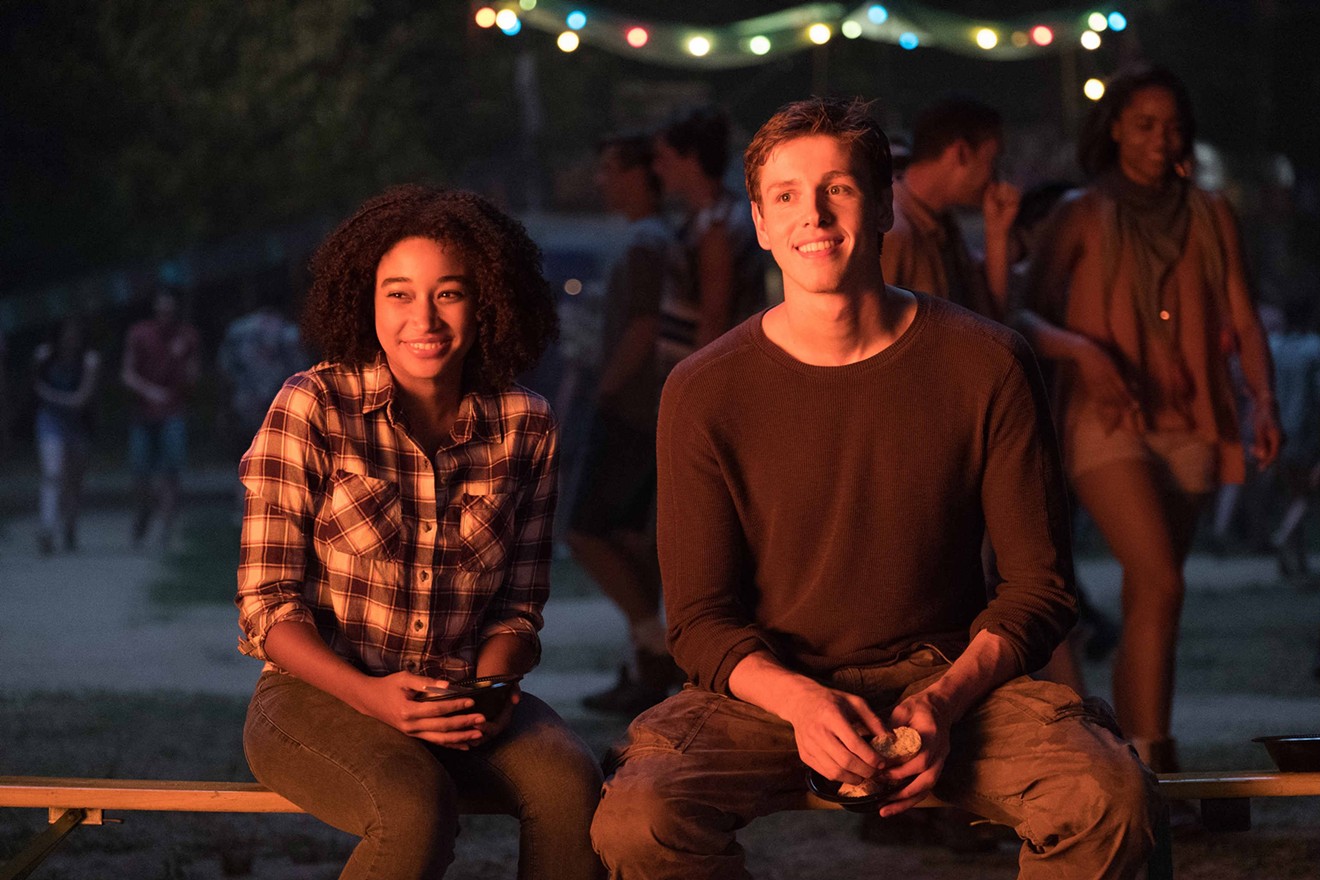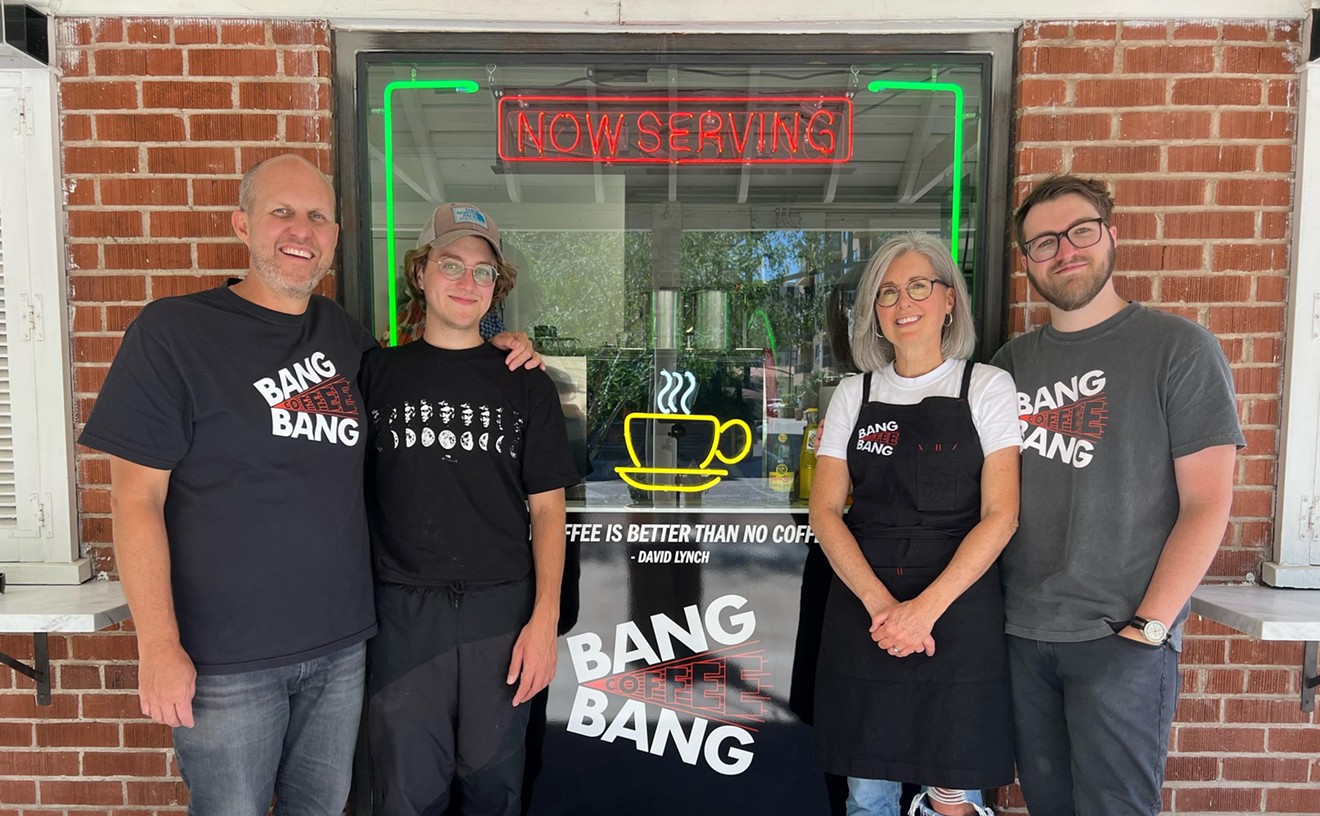Arriving in theaters a half-generation late, the YA adaptation The Darkest Minds is curiously behind the times and right on the money. The dystopias of the high Hunger Games era may now seem passé, but damned if every multiplex in America isn’t going to be showing kids locked in cages by the government this weekend. Director Jennifer Yuh Nelson’s first feature, based on book one in a series by Alexandra Bracken, isn’t likely to inspire a new age of teens daydreaming about how romantic it might be to wage guerilla warfare against an oppressive government.
Its mythology is too dense and too borrowed, its worldbuilding flimsy, its narrative logic at times confounding: Why must the hero Ruby, played by the skillful and appealing Amandla Stenberg, sacrifice her own desire so that her true love does not have to join the organized resistance to the kid-caging government? The issue goes beyond the fact that such both-sides-are-bad handwringing doesn’t wash after 2016: The emotional logic of the book has not survived the process of adaptation. Often, watching the film, you can sense richer, more interesting conflicts underpinning the story than what makes it onscreen.
But much of what does make the movie is engaging, especially once the leads, a band of superpowered teen misfits in an America where most children have died of a mysterious plague, find the time to discover each other. Yuh Nelson proves adept with her young actors, drawing out relaxed and detailed performances while carefully managing the space between them in the frame. Soon, camaraderie and crushes fizz agreeably among these teen outlaws, and the film’s middle section, which finds four kids escaped from government camps tooling around Virginia in a stolen van, has a welcome hangout vibe, a reprieve from the constant noisy violence of the Hunger Games and Maze Runner films.
That’s also a relief from the glumly rushed opening, in which the dystopian setup goes by so fast it plays like a TV drama’s “Previously on ...” While the interactions between the leads boast the warm gooniness of actual friendships, the world-gone-to-hell stuff is unconvincing, sometimes comically so. An assemblage of TV clips sets the stage: Ninety percent of all children have died within the space of a month, with the survivors gaining a variety of superpowers that the government catalogs in a color-coded chart ripped right from the Bush administration. The fictional newscasters we see are more calm talking about the plague than real ones today are talking about Paul Manafort’s ostrich coat, and the American president declares, hilariously but not unreasonably, that this is not the time for politics. Am I naive to think that losing all but 1/10th of this nation’s children might inspire a moment of bipartisanship? Soon, the kids who are left get shoved into camps, and those with the scariest superpowers — the oranges and reds — are either executed or turned into government enforcers.
The story starts six years later, when 16-year-old Ruby is broken out of prison. She has Jedi mind-trick powers but with an X-Men twist: She can briefly implant a suggestion into the brain of anyone she touches, but she also can’t turn off the gush of impressions and backstory she picks up whenever her skin glazes anyone else’s. Thus, she can’t kiss the boy (Harris Dickinson) she likes — a dilemma that Yuh Nelson and her performers wring for all it’s worth. Also excellent in smaller roles are Skylan Brook, who wins laughs in the role of motormouthed smarty-pants Chubs even when the script hasn’t given him anything funny to say, and Gwendoline Christie, who turns up in something of a reprise of her Star Wars role: the terrifying villain who after much buildup suffers an amusingly quick defeat.
The plot sends the kids looking for an enclave of escapees. They find it, and then things go wrong, as they must. The filmmakers do capable work with a couple of chase and fight sequences, but they’re not the film’s heart. That’s for better, not for worse. Its heart, instead, is in Ruby’s horror and courage after the discovery of one of her telepathic powers: She can make a person forget they ever met her. Too bad that, with so much dystopian nonsense to establish, The Darkest Minds can’t dedicate as much screen time to why she must use this power as they do to how much it hurts. But, even then, rushing through a story better articulated in the book, the filmmakers demonstrate that neither they nor this adaptation can be easily written off. There’s poetry in seeing Ruby dissolve away from a series of memories, more so than in the heroes-turn-to-dust climax of Avengers: Infinity War. And Stenberg is so compelling a presence that her erasure, even just from one character’s mind, is something to mourn.
[
{
"name": "Air - MediumRectangle - Inline Content - Mobile Display Size",
"component": "18478561",
"insertPoint": "2",
"requiredCountToDisplay": "2"
},{
"name": "Editor Picks",
"component": "16759093",
"insertPoint": "4",
"requiredCountToDisplay": "1"
},{
"name": "Inline Links",
"component": "17980324",
"insertPoint": "8th",
"startingPoint": 8,
"requiredCountToDisplay": "7",
"maxInsertions": 25
},{
"name": "Air - MediumRectangle - Combo - Inline Content",
"component": "16759092",
"insertPoint": "8th",
"startingPoint": 8,
"requiredCountToDisplay": "7",
"maxInsertions": 25
},{
"name": "Inline Links",
"component": "17980324",
"insertPoint": "8th",
"startingPoint": 12,
"requiredCountToDisplay": "11",
"maxInsertions": 24
},{
"name": "Air - Leaderboard Tower - Combo - Inline Content",
"component": "16759094",
"insertPoint": "8th",
"startingPoint": 12,
"requiredCountToDisplay": "11",
"maxInsertions": 24
}
]












